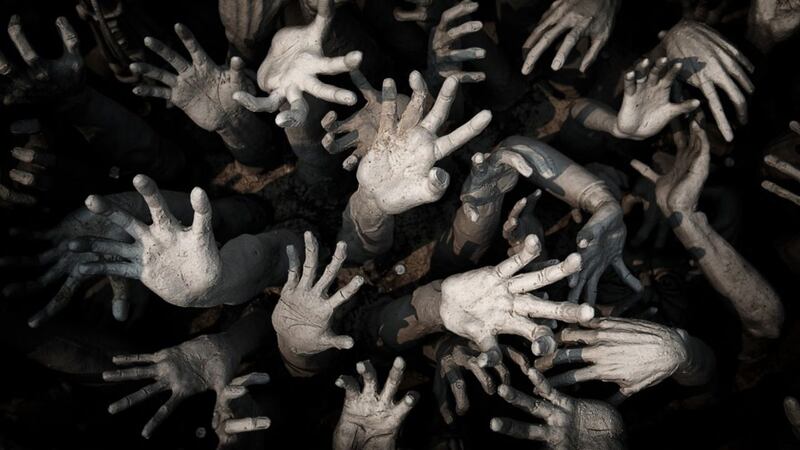The NHS combines a huge bureaucracy with an elite profession.
When things go wrong in hospitals, as they inevitably do, this combination leads to denial, dishonesty, cover-up and an arrogant closing of the ranks.
The standard solution, proposed in report after report, is to introduce the ‘no blame culture’ or ‘just culture’ of the aviation industry, where admitting fault is encouraged as the bedrock of safety.
The hyponatraemia inquiry into the deaths of five children in Northern Ireland hospitals has reached a strikingly different conclusion.
Inquiry chair Mr Justice O’Hara wants the duty of candour - already a contractual obligation on NHS staff - put into criminal law.
In other words, not telling the truth promptly would be an offence.
This indicates the degree of obstruction the inquiry uncovered and the uselessness of present arrangements. For example, health trusts threatened UTV’s Insight team, who broke the story, with “legal action” - a direct breach of the contractual duty.
A statutory duty was also recommended by the 2013 inquiry into the Stafford Hospital scandal, believed to involve up to 1,200 deaths.
That proposal caused shock but now it looks like an idea whose time has been forced to come.
**
All you need to know about Northern Ireland politics can be found in the DUP and Sinn Féin responses to the closure of Kilroot power station.
The DUP has tried to frighten its supporters with ludicrous claims that the Irish government cannot be trusted to keep the lights on, now that more of Northern Ireland’s power supply is in southern state ownership.
If that is what the DUP believes, why did Arlene Foster spend her time as enterprise minister developing the all-Ireland electricity market?
Sinn Féin has tried to frighten its supporters with ludicrous claims that the all-Ireland market is threatened by Brexit.
Not only is this nonsense but it ignores the real threat the industry has been screaming about for years - delays to the north-south interconnector, a project opposed by Sinn Féin for purely selfish and cynical reasons.
Special marks must go to East Antrim MP Sammy Wilson, who praised Kilroot “workers” for keeping the lights on. It is hard not to think of the Ulster Workers’ Council, which used the power stations in his constituency to switch the lights off.
**
A spate of so-called punishment shootings across Belfast, beginning on Sunday night, was eerily predicted in that morning’s newspapers.
A source informed the Sunday World that dissident group Óglaigh na hEireann would breach its recent ceasefire with such shootings, not to gain ‘community support’ (that ship has sailed) but simply to “create a market” for its restorative justice funding scams.
Amid all the political and police hand-wringing over this week’s attacks, has nobody thought of simply turning off the money?
**
If Sinn Féin’s rewriting of history becomes any more audacious we will have to start referring to the revisionals.
An Phoblacht - now an online-only publication - has run a piece by party chair Declan Kearney claiming the civil rights movement was “inspired”, “developed” and “organised” by “the IRA and Sinn Féin leaderships at that time.”
The basis of this claim is the presence of a few Official IRA members at early meetings, which everyone else at the time noted as a fringe attempt at entryism.
In what he clearly feels to be a ‘ta-da!’ revelation, Kearney adds that the SDLP was irrelevant because it was founded after the Civil Rights Association.
The fact that both were founded by the same people has apparently been decommissioned.
Although Kearney and his article attracted much hilarity, An Phoblacht’s decision to run it on the anniversary of Bloody Sunday was the height of bad taste. It is not as if an online publication has print deadlines to meet.
**
Northern Ireland’s creative community is in turmoil after John Edmund, chair of the Arts Council, suggested artists here are too dependent on grants and should learn from business to find other sources of income.
A backlash began online and quickly led to calls for his resignation.
Public funding for the arts is comparatively low in Northern Ireland, so in strictly financial terms Edmund’s case is weak. However, his case is bolstered by the censorious fury of the reaction. An arts sector this intolerant of uncomfortable ideas may well have been stultified by public sector dependency.
**
Unionist councillors in Newtownards have caused a row by proposing to name a leisure centre after Second World War SAS major Blair Mayne, a native of the town.
Comparisons have been made to the Raymond McCreesh playground in Newry, although that is a bit of a stretch even by the most generous interpretation of the IRA’s military credentials.
The real comparison is with George Best City Airport, just over the Craigantlet Hills - another facility that really ought not be named after a noted drinker.
newton@irishnews.com









